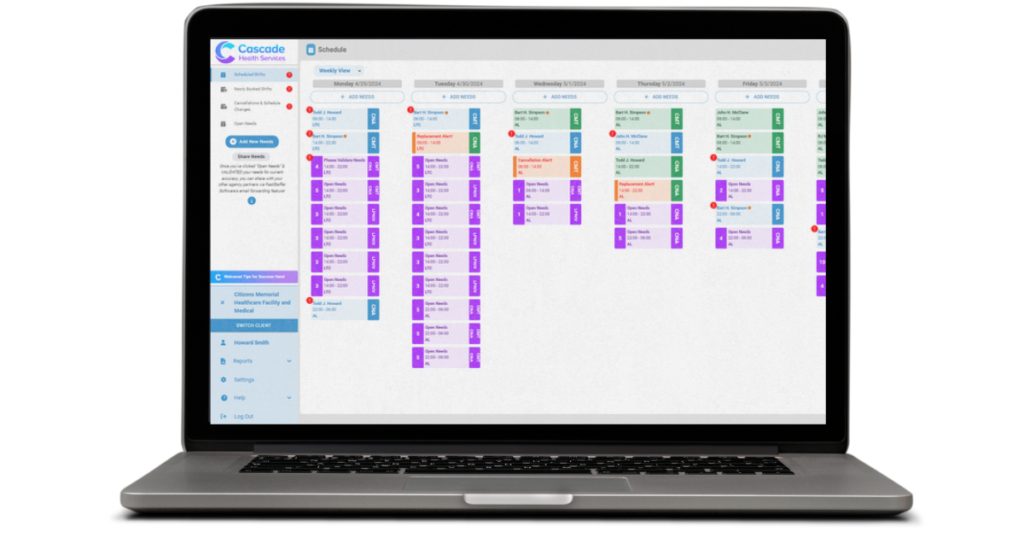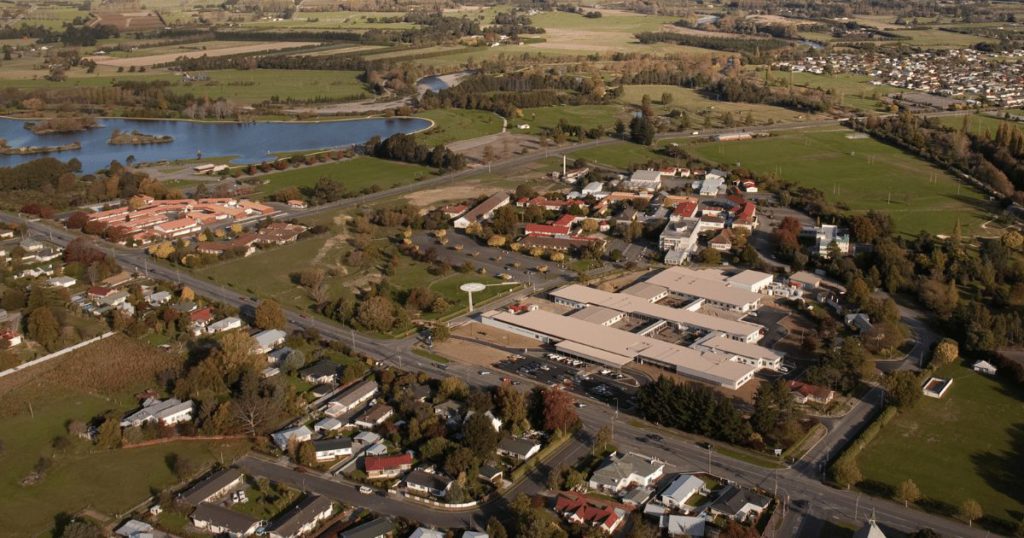The healthcare industry faces a relentless challenge: ensuring adequate staffing to deliver quality care to an ever-growing aging population. A persistent shortage of qualified professionals across various roles adds another layer of complexity. However, amidst these challenges lies a landscape of opportunity. Technological advancements, evolving patient needs, and a changing workforce are driving a transformation in healthcare staffing.
This blog dives into the key trends shaping the future of healthcare staffing. We’ll explore how the rise of Artificial Intelligence (AI), the growing demand for specialized skills, and the increasing popularity of flexible work arrangements will impact how healthcare facilities find and retain top talent. We’ll also discuss strategies for building a diverse and inclusive workforce to serve the needs of all patients better. Finally, we’ll offer insights on how healthcare facilities, including critical access hospitals in rural communities, can adapt and prepare their staffing strategies to thrive in the future.
Table of Contents
The Rise of Machines
In the past, recruiters had to manually sift through hundreds of resumes to try and find the most qualified candidates. Since AI has emerged, it has shown that it is a powerful tool to streamline recruiting efforts. AI-powered software can automatically screen resumes based on predefined criteria and even schedule interviews. This frees up a lot of time for recruiters to focus on building relationships with candidates. Oftentimes the best candidates have options, and the company with the best culture is going to win.
However, it is important to acknowledge that AI algorithms can have biases if they are trained on incomplete data sets. It’s always a good idea to double-check anything AI does for you. Even if you have to double-check the work – AI is an extremely powerful tool to streamline your recruiting efforts.
Specialized Nurses are in High Demand
It’s no secret that healthcare is constantly changing. The skill sets needed to deliver quality care are changing just as quickly. The rise of telehealth creates a necessity for professionals comfortable providing virtual care. Similarly, the aging population requires an increase in geriatric care specialists with expertise in treating conditions specific to older adults.
Healthcare facilities can future-proof their workforce by investing in furthering education. These kinds of programs equip existing staff with more knowledge and certifications so they can provide the best care possible. Staying informed on emerging specializations and actively recruiting talent with these skills is the key to future success within any organization. Furthering education is a great benefit to help attract and retain a high-quality workforce.
Flexibility Wins in Healthcare Staffing

Let’s be honest, we all crave flexibility at work. We all have lives, and if there is any opportunity to increase the flexibility in our schedule, the vast majority of us would take advantage of it. The younger generations of healthcare professionals are taking advantage of PRN healthcare staffing models, and taking control of their schedules.
By partnering with healthcare staffing agencies, you’ll increase the number of nurses you can call on to help with temporary staffing shortages or help close the gap in specialties for a short period. This allows you to maintain safe nurse-to-patient ratios while you continue to recruit a permanent nurse.
Keep in mind that not all staffing agencies are created equal. There are two main types of healthcare staffing agencies. 1099 and W-2. W-2 agencies like Cascade Health Services have more control over staff and have the ability to help healthcare organizations find staffing solutions. 1099 “gig agencies” tend to have lower-quality staff, no control, and just want to fill gaps in schedules.
A More Inclusive Future for Healthcare
A diverse and inclusive healthcare workforce is not just a social imperative, it’s good business practice. A staff that reflects the demographics of the patient population fosters better communication, cultural understanding, and ultimately, improved patient outcomes.
Healthcare facilities can champion diversity and inclusion by implementing targeted recruitment campaigns that reach out to underrepresented communities. Additionally, fostering a culture of respect and belonging through unconscious bias training and creating inclusive work environments will be key to attracting and retaining a diverse workforce.
Healthcare Staffing is Hard for Rural Communities

Critical Access Hospitals (CAHs) play an important role in ensuring access to essential healthcare services for rural communities. These facilities have unique staffing challenges because of their location and limited resources. Rural areas have less talent to recruit, and it takes a solid recruitment strategy to convince nurses in the city to move or commute to rural areas. One of the things CAHs focus on to combat low nurse ratios is utilizing telehealth, but this can come with its own set of challenges.
Because of this CAHs partner with healthcare staffing agencies to increase their chances of filling empty shifts, and even help them with their permanent placement recruitment strategy. New rulings by the CMS want to increase the minimum staffing standards. Critical access hospitals will have to employ which could cause more harm than good for rural communities.
What are the Challenges Faced by Critical Access Hospitals?
Staffing Shortages: Like many healthcare facilities, CAHs struggle to recruit and retain qualified staff, particularly nurses and specialists. Remote locations and lower salaries compared to urban settings make attracting talent even harder.
Limited Resources: CAHs typically operate with smaller budgets and fewer resources than larger hospitals. This can limit their ability to invest in new equipment, technology, and training programs for staff.
Uncompensated Care: Rural communities often have higher poverty rates, leading to a larger proportion of patients who are uninsured or underinsured. This results in increased uncompensated care costs for CAHs, further straining their financial resources.
Regulatory Burden: CAHs must comply with the same complex healthcare regulations as larger hospitals, despite having fewer resources to navigate them. This can be a significant administrative burden for these smaller facilities.
Technological Limitations: Rural areas often have limited access to high-speed internet and other essential technologies. This can hinder CAHs from implementing telehealth services and other technological advancements that improve patient care.
Competition: Even in rural areas, CAHs may face competition from larger healthcare systems that are expanding their reach. This can make it even harder for CAHs to attract patients and maintain financial viability.
Preparing for the Future of Healthcare Staffing
The future of healthcare staffing is a landscape of innovation and collaboration. Here’s how facilities can prepare:
- Embrace Technology: Invest in tools like AI-powered recruitment software and telehealth platforms.
- Invest in Staff Development: Offer training programs to upskill existing staff and develop specialized skill sets.
- Promote Flexibility: Consider offering flexible work arrangements to attract and retain talent.
- Diversity and Inclusion Initiatives: Implement strategies to attract and retain diverse talent.
- Partner with Staffing Agencies: Leverage the expertise and resources of healthcare staffing agencies.
By proactively adapting to these trends and implementing the strategies discussed above, healthcare facilities can navigate the changing landscape of healthcare staffing and ensure they have the skilled workforce needed to deliver exceptional patient care. The future of healthcare staffing is bright, and those who embrace innovation and collaboration will be best positioned to thrive.

